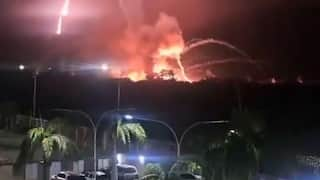Global AI Watchdog Proposal Finds Support From UN Secretary-General António Guterres
OpenAI, the organisation behind ChatGPT, recently suggested that an agency similar to the IAEA could impose restrictions on AI deployment.

UN Secretary-General António Guterres expressed his endorsement on Monday for a proposal put forth by several executives in the field of artificial intelligence (AI) regarding the establishment of an international AI oversight organisation, similar to the International Atomic Energy Agency (IAEA), as reported by Reuters. The advent of generative AI technology, which can generate authoritative and coherent text based on given prompts, has garnered significant public interest ever since the launch of ChatGPT six months ago, making it the fastest-growing application in history.
However, AI has also raised concerns due to its potential for producing deep fake images and spreading misinformation.
Guterres, addressing reporters, emphasised the urgent need to address the concerns surrounding the latest form of AI, particularly generative AI, and underlined the importance of taking these warnings seriously. Consequently, he announced plans to initiate the formation of a high-level AI advisory body by the end of this year. This body's primary objective would be to regularly evaluate existing AI governance frameworks and provide recommendations on ensuring their alignment with human rights, the rule of law, and the common good.
Additionally, Guterres expressed his openness to the idea of establishing an agency specifically dedicated to artificial intelligence. He drew inspiration from the International Atomic Energy Agency (IAEA) and described its model as "very interesting." However, he acknowledged that the creation of such an agency would require the participation of member states rather than the Secretariat of the United Nations. The IAEA, headquartered in Vienna, was founded in 1957 with a mission to promote the secure, safe, and peaceful use of nuclear technologies, while also monitoring compliance with the Non-Proliferation Treaty (NPT). It currently has 176 member states.
OpenAI, the organisation behind ChatGPT, recently suggested that an agency similar to the IAEA could impose restrictions on AI deployment, ensure adherence to safety standards, and monitor the utilisation of computational resources.
British Prime Minister Rishi Sunak has also expressed support for this concept, expressing a desire for Britain to become a global hub for AI safety regulation. To this end, Britain is planning to host a summit later this year to explore coordinated international measures to mitigate the risks associated with AI.
Guterres expressed his backing for the summit in Britain but emphasised the need for thorough preparations before its convening. In the coming days, he intends to appoint a scientific advisory board comprising AI experts and chief scientists from various UN agencies to contribute their expertise to the initiative.
Related Video
Apple creates a new record in iPhone sales after launch of iPhone 16 | ABP Paisa Live





































